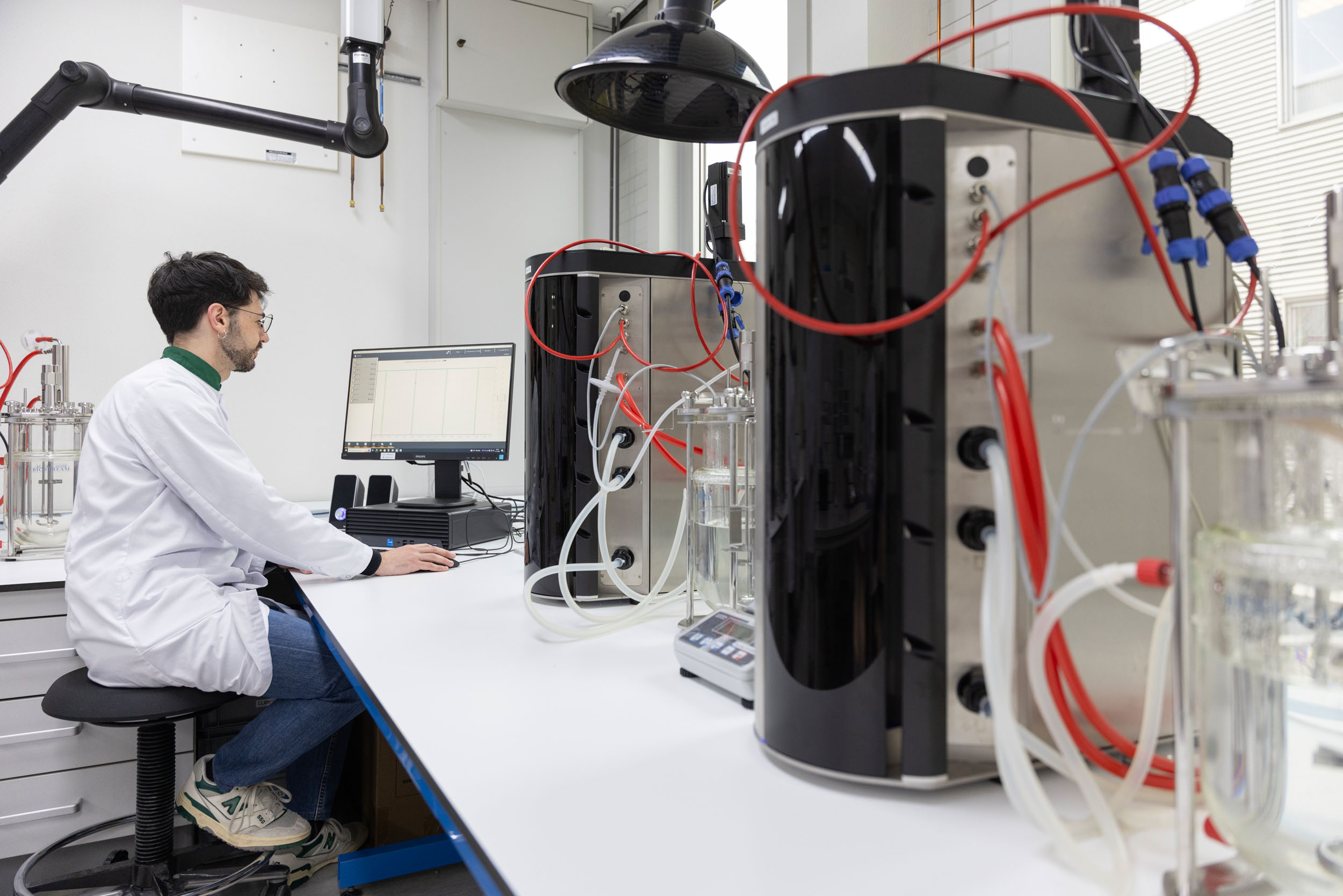Assignment Description
As an intern at MNEXT, your primary objective for this internship project is to conduct a feasibility test on bioethanol production using an exotic stress-tolerant yeast strain isolated from biowastes and byproducts of a sugar factorie. This project will focus on comparison of the production of bioethanol by using this yeast and common yeast. The secondary goal is to evaluation the ethanol yield and productivity using different Dutch oringined sugar sources as substrats.
Project Description
1. Literature Review and Understanding Bioethanol Production:
- Conduct a comprehensive review of current bioethanol production methods.
- Study the characteristics and benefits of bioethanol over traditional fossil fuels.
- Understand the role of yeast and other microorganisms in the fermentation process.
2. Optimization of Fermentation Parameters:
- Investigate and optimize the fermentation conditions (pH, temperature, sugar concentration) for the selected yeast strains.
- Conduct experiments to determine the optimal conditions for maximum ethanol yield for the exotic strain.
3. Comparative Analysis:
- Compare the performance of selected exotic strain with conventional strains used in bioethanol production.
- Analyze the efficiency of bioethanol production in terms of yield, productivity, and cost-effectiveness.
4. Data Analysis and Reporting:
- Collect and analyze data from fermentation experiments.
- Prepare detailed reports on the findings and suggest improvements for industrial bioethanol production processes.
Expected Outcomes:
- Fermentation feasibility test on selected yeast strains with various substrates,
- Optimized fermentation parameters leading to higher bioethanol yields with Dutch origined substrates and selected exotic yeast strain.
Skills and Competencies Gained:
- Hands-on experience in microbiological techniques and fermentation processes.
- Analytical skills in optimizing bioethanol production.
- Experience in data analysis, reporting, and impact assessment.
Working language: we have a multidisciplinary and international team. Therefore, the language is English. Some of the researchers also speak Dutch.
Starting Date & Compensation
- The length of the internship graduation assignment is approximately 20-30 weeks, depending on the scope and depth of the research conducted.
- The student will get an internship fee of €350, – per month.




